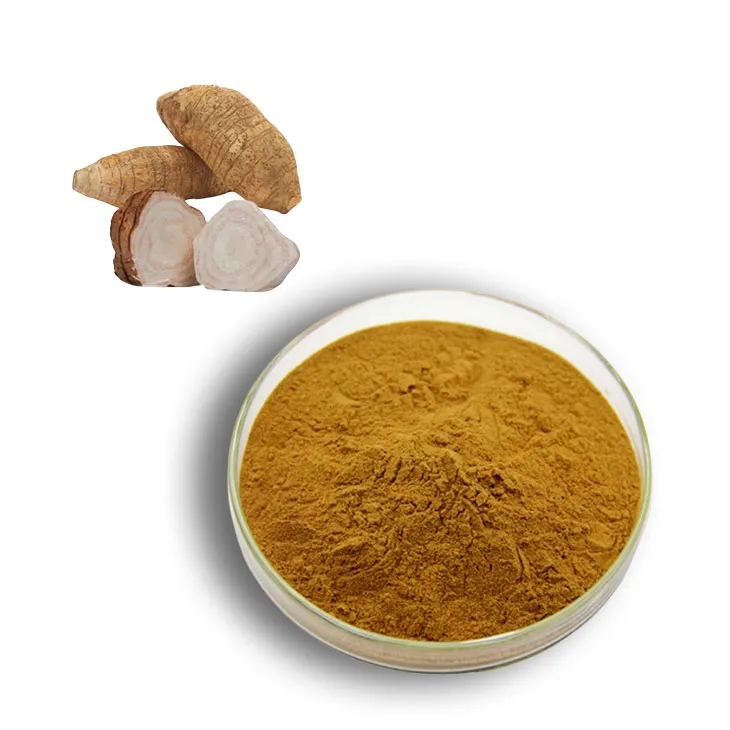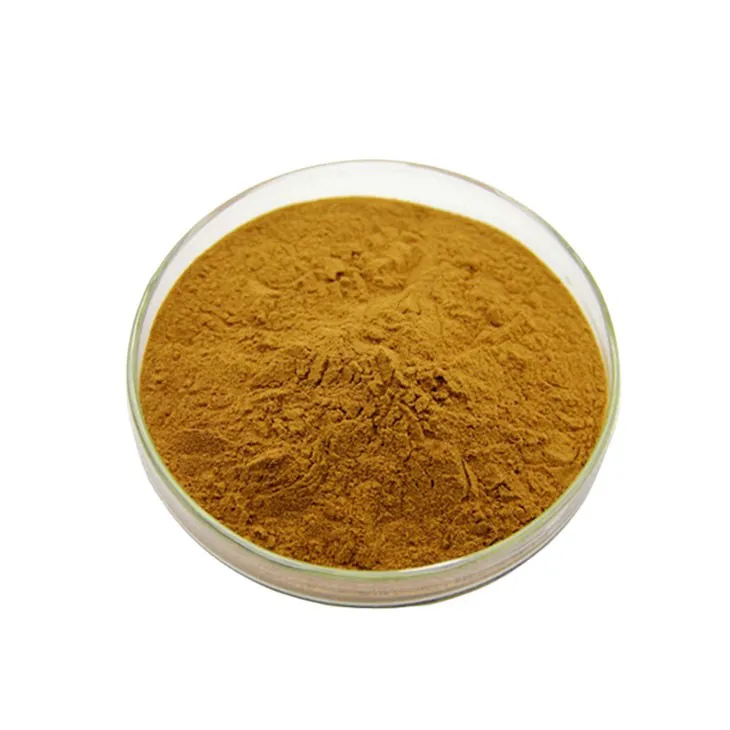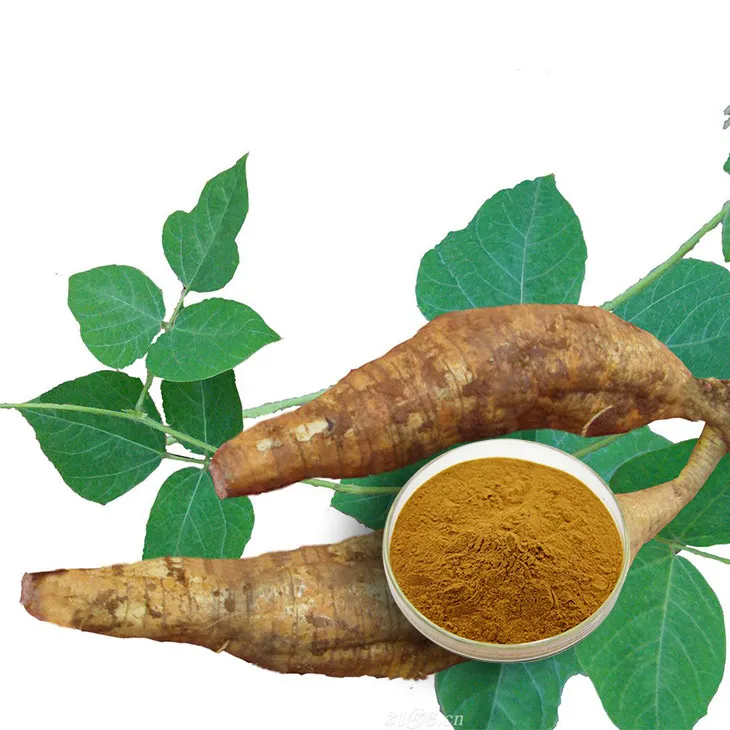- 0086-571-85302990
- sales@greenskybio.com
How to Conduct Business in the Lucrative Pueraria Lobata Extract Industry.
2024-12-20

1. Introduction
The Pueraria Lobata Extract industry has emerged as a highly lucrative field in recent years. With the increasing demand for natural products in various sectors such as pharmaceuticals, cosmetics, and food supplements, the potential for growth in this industry is substantial. However, to succeed in this competitive market, entrepreneurs need to understand and master several key aspects of the business.

2. Quality Control: The Foundation of Success
Quality control is the cornerstone of any successful Pueraria Lobata Extract business. It should be a top priority from the very beginning, starting with the cultivation or sourcing of kudzu roots.
2.1 Cultivation and Sourcing
When it comes to cultivation, it is essential to ensure that the kudzu plants are grown in suitable environments. The soil quality, climate conditions, and use of pesticides or fertilizers all impact the quality of the roots. Organic cultivation methods are often preferred as they can result in roots with higher purity and fewer contaminants.
- Regular soil testing should be carried out to monitor nutrient levels and ensure the soil is free from harmful substances.
- Proper irrigation techniques should be employed to prevent waterlogging or drought stress on the plants.
- Verify the reputation of the supplier. Look for those with a long - standing history of providing high - quality raw materials.
- Conduct on - site inspections if possible to assess the growing conditions and harvesting practices.
- Require suppliers to provide detailed documentation regarding the origin, cultivation methods, and any treatments applied to the roots.
2.2 The Extraction Process
The extraction process of Pueraria Lobata Extract also demands strict quality control. Different extraction methods can yield extracts with varying compositions and potencies.
- Choose the appropriate extraction solvent. For example, ethanol - based extractions are commonly used, but the concentration and purity of the ethanol need to be carefully controlled.
- Employ modern extraction technologies such as supercritical fluid extraction for higher - quality and more consistent extracts. These technologies can help to preserve the bioactive compounds in the kudzu roots.
- Regularly monitor and calibrate the extraction equipment to ensure accurate and efficient operation. Any deviation in the extraction parameters can affect the quality of the final product.
- Chemical analysis to determine the concentration of key active ingredients such as isoflavones.
- Microbial testing to ensure the extract is free from harmful bacteria, fungi, and other microorganisms.
- Stability testing to assess how the extract behaves under different storage conditions over time.

3. Research and Development: Unlocking New Opportunities
Research and development (R & D) is another crucial factor in the Pueraria Lobata extract business. By investing in R & D, companies can explore new applications and expand their market reach.
3.1 Pharmaceutical Applications
In the pharmaceutical field, Pueraria Lobata extract has shown potential in various areas.
- Studies have suggested that its isoflavones may have anti - inflammatory properties. R & D efforts could focus on formulating drugs or supplements for treating inflammatory diseases such as arthritis.
- There is also evidence indicating that kudzu extract may help in regulating blood sugar levels. This could lead to the development of new medications for diabetes management.
- Researchers could explore the use of kudzu extract in the field of cardiovascular health. For example, investigating its potential to lower cholesterol or improve blood vessel function.
3.2 Cosmetic Applications
The cosmetic industry is also a promising area for Pueraria Lobata extract.
- Its antioxidant properties make it suitable for use in anti - aging products. R & D can be directed towards creating creams, lotions, or serums that can reduce wrinkles and improve skin elasticity.
- Kudzu extract may also have a role in hair care products. It could potentially be used to strengthen hair follicles, reduce hair loss, and improve hair shine.
- With the increasing demand for natural and organic cosmetics, kudzu extract can be formulated into products that meet these consumer preferences.
3.3 Other Potential Applications
Beyond pharmaceuticals and cosmetics, there are other potential applications worth exploring.
- In the food industry, kudzu extract could be used as a natural flavor enhancer or preservative. R & D could focus on developing new food products or improving the shelf - life of existing ones.
- The extract may also have applications in the field of traditional medicine. For example, in some Asian cultures, kudzu has been used for centuries for various health purposes. R & D can help to modernize and validate these traditional uses.

4. Networking: Building a Strong Business Ecosystem
Networking is essential for any business in the Pueraria Lobata extract industry. It enables companies to connect with various stakeholders, which can bring numerous benefits.
4.1 Connecting with Suppliers
Establishing strong relationships with suppliers is crucial.
- By working closely with suppliers, businesses can ensure a stable supply of high - quality kudzu roots. This can prevent production disruptions due to shortages or quality issues.
- Suppliers can also provide valuable information about new cultivars or improved cultivation methods, which can be incorporated into the business's operations.
- Negotiating favorable terms with suppliers, such as volume discounts or longer - term contracts, can help to reduce costs and improve profit margins.
4.2 Collaborating with Manufacturers
Partnering with manufacturers is another important aspect of networking.
- If a company specializes in raw material extraction, collaborating with manufacturers who can process the extract into final products (such as tablets, capsules, or creams) can expand the business's product range.
- Manufacturers may have expertise in formulation, packaging, and marketing, which can be shared with the extract - producing company. This can lead to the development of more competitive products.
- Joint ventures or strategic alliances with manufacturers can also help to share the financial risks and resources involved in product development and production.
4.3 Partnering with Potential Partners
In addition to suppliers and manufacturers, there are other potential partners that can contribute to the success of the business.
- Research institutions can be valuable partners for R & D activities. They can provide access to state - of - the - art research facilities, expert scientists, and the latest scientific knowledge.
- Marketing and distribution partners can help to promote and sell the Pueraria Lobata extract products. They have the networks and expertise to reach a wider customer base, both domestically and internationally.
- Industry associations can also play a role. By joining relevant associations, businesses can stay updated on industry trends, regulations, and best practices. They can also participate in networking events and collaborate with other members of the industry.
5. Compliance: Gaining Customer Trust
Compliance with relevant regulations and certifications is necessary to build trust among customers in the Pueraria Lobata extract business.
5.1 Regulatory Requirements
Different countries and regions have their own regulatory requirements for food supplements, pharmaceuticals, and cosmetics containing Pueraria Lobata extract.
- In the United States, for example, products need to comply with the regulations of the Food and Drug Administration (FDA). This includes requirements for product labeling, safety testing, and manufacturing practices.
- In the European Union, there are strict regulations regarding the use of herbal extracts in various products. Companies need to ensure that their products meet the criteria set by the European Medicines Agency (EMA) and other relevant authorities.
- Even in emerging markets, regulatory frameworks are being developed to ensure the safety and quality of products. Businesses need to stay informed and adapt to these requirements.
5.2 Certifications
Obtaining relevant certifications can enhance the credibility of Pueraria Lobata extract products.
- Good Manufacturing Practice (GMP) certification is highly regarded in the industry. It indicates that a company follows strict manufacturing standards, which can assure customers of product quality and safety.
- Organic certifications are also important, especially for products targeting consumers who prefer organic products. Certifications such as USDA Organic in the United States or EU Organic in the European Union can attract a niche market segment.
- ISO certifications, such as ISO 9001 for quality management or ISO 14001 for environmental management, can demonstrate a company's commitment to overall excellence and sustainability.
6. Conclusion
Conducting business in the lucrative Pueraria Lobata extract industry requires a comprehensive approach. Quality control, research and development, networking, and compliance are all integral parts of building a successful and sustainable business. By focusing on these aspects, entrepreneurs can tap into the growing market potential of Pueraria Lobata extract and establish a strong position in this competitive industry.
FAQ:
Q1: What are the key aspects of quality control in the Pueraria Lobata extract business?
Quality control in the Pueraria Lobata extract business is crucial at every stage. From the initial cultivation or sourcing of kudzu roots, one must ensure they are of high - quality, free from contaminants, and grown in suitable conditions. During the extraction process, strict manufacturing standards should be adhered to. This includes using proper extraction techniques, maintaining clean and hygienic facilities, and having accurate quality testing procedures to ensure the purity, potency, and consistency of the extract.
Q2: How can research and development contribute to the success of a Pueraria Lobata extract business?
Research and development can significantly contribute to the success of a Pueraria Lobata extract business. By exploring new applications in fields such as pharmaceuticals and cosmetics, new market opportunities can be opened. For example, in the pharmaceutical area, research might discover new medicinal properties of the extract, leading to the development of new drugs. In cosmetics, it could be used in innovative skincare or haircare products. Additionally, R & D can also focus on improving the extraction process to increase efficiency and quality, which can give a competitive edge in the market.
Q3: Why is networking important in the Pueraria Lobata extract industry?
Networking is vital in the Pueraria Lobata extract industry. Connecting with suppliers helps ensure a stable and cost - effective supply of kudzu roots. Linking with manufacturers allows for knowledge sharing on best practices in extraction and production. And partnering with potential clients or other businesses in related fields can open doors to new markets. It can also lead to cost - reduction through joint procurement or shared resources, and facilitate the exchange of expertise, which is beneficial for overall business growth.
Q4: What regulations and certifications are relevant to the Pueraria Lobata extract business?
There are several regulations and certifications relevant to the Pueraria Lobata extract business. In the pharmaceutical field, it may need to comply with drug manufacturing and quality control regulations. For use in cosmetics, it has to meet cosmetic ingredient safety and quality standards. General food - related regulations may also apply if it is used in food products. Certifications such as Good Manufacturing Practice (GMP) can enhance the credibility of the business. Organic certifications may be relevant if the kudzu roots are sourced organically, which can attract more customers who prefer organic products.
Q5: How can a business start exploring new applications of Pueraria Lobata extract?
To start exploring new applications of Pueraria Lobata extract, a business can first invest in research. This can involve collaborating with research institutions or universities that have expertise in botany, pharmacology, or cosmetics. They can also conduct market research to identify emerging trends and unmet needs in different industries. Another approach is to participate in industry conferences and trade shows, where they can learn about the latest developments and network with potential partners who may have ideas or technologies for new applications. Additionally, in - house R & D teams can be established to conduct experiments and develop prototypes of new products using the extract.
Related literature
- The Potential of Pueraria Lobata in Modern Medicine"
- "Pueraria Lobata Extract: New Insights in Cosmetic Applications"
- "Quality Control Standards for Herbal Extracts: Focus on Pueraria Lobata"
- ▶ Hesperidin
- ▶ citrus bioflavonoids
- ▶ plant extract
- ▶ lycopene
- ▶ Diosmin
- ▶ Grape seed extract
- ▶ Sea buckthorn Juice Powder
- ▶ Beetroot powder
- ▶ Hops Extract
- ▶ Artichoke Extract
- ▶ Reishi mushroom extract
- ▶ Astaxanthin
- ▶ Green Tea Extract
- ▶ Curcumin Extract
- ▶ Horse Chestnut Extract
- ▶ Other Problems
- ▶ Boswellia Serrata Extract
- ▶ Resveratrol Extract
- ▶ Marigold Extract
- ▶ Grape Leaf Extract
- ▶ blog3
- ▶ blog4
- ▶ blog5
-
Pure 85% Tomentil Extract.
2024-12-20
-
Shikone Extract
2024-12-20
-
Golden Seal Extract
2024-12-20
-
Passionflower Extract
2024-12-20
-
Yellow Pine Extract
2024-12-20
-
Medicinal Marshmallow Extract
2024-12-20
-
Resveratrol extract
2024-12-20
-
Boswellia Serrata Extract
2024-12-20
-
Beetroot juice Powder
2024-12-20
-
Licorice Root Extract Powder
2024-12-20
-
Senna Leaf Extract
2024-12-20





















